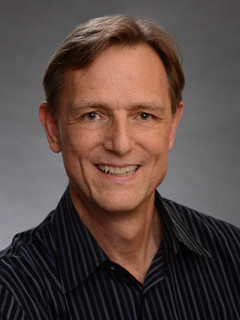HOW CAN WE HELP YOU? Call 1-800-TRY-CHOP
In This Section
Training a New Generation of Diverse Pediatric Scientists to Improve Child Health
Developing integrated Learning Health Systems (LHS) that improve child health requires a new generation of pediatric scientists with diverse backgrounds. Researchers at Children’s Hospital of Philadelphia are addressing this need by establishing a new National Pediatric LHS Embedded Scientist Training and Research Center to prepare faculty with skill sets to conduct, apply, and implement patient-centered outcomes research to improve quality of care and patient outcomes in an LHS.
The Center will have a strong diversity focus with activities that address outreach, the application process, mentorship, and professional development of scientists from groups underrepresented in science. It will focus exclusively on the health and healthcare of children and will encourage projects that address comparative effectiveness research, improvement and implementation science, health equity, disparities, and health informatics.
The goal is to enroll and retain two highly qualified, diverse cohorts of promising junior and mid-career LHS scientists — PEDSnet Scholars — who are committed to pursuing intensive training and mentoring in LHS science. The Center is supported by a five-year, $5 million grant from the Agency for Healthcare Research and Quality and the Patient-Centered Outcomes Research Institute (PCORI) who are partnering to advance LHS scientist training,
While the term “learning health system” is not widely known, CHOP experts have led a pediatric LHS training program called PEDSnet Scholars from 2018 to 2023 that trained 29 faculty from across the country in four core areas. The new grant extends this successful training program for an additional five years.
“We anticipate the future PEDSnet Scholars working within our Center will become institutional and national leaders in not only advancing outcomes but also in forging the national pediatric LHS system,” said Christopher Forrest, MD, PhD, director of the Applied Clinical Research Center at CHOP. Dr. Forrest is co-leading the establishment of the National Pediatric LHS Embedded Scientist Training and Research Center and integrating it with PEDSnet, which he also directs.
PEDSnet is part of the PCORnet National Patient-Centered Clinical Research Network and consists of 11 children’s hospital members that provide care for 10% of the nation’s children. Its mission is to conduct multicenter LHS science projects that improve the care and outcomes of children and pediatric healthcare systems.
Learning Health System Science 101
An LHS is a health system in which internal data and experience are systematically integrated with external evidence, and that knowledge is put into practice quickly and equitably to optimize patient care. It is a way of accelerating how scientists learn, to enhance decision-making, and improve outcomes.
The multidisciplinary field of LHS science, which provides a rigorous, practical, and data-driven approach for continuously learning and improving patient and health system outcomes, developed quickly over the past two decades. Unlike conventional research and improvement projects, which are one-and-done with start-up and shut-down phases, LHS science is a continuous process in which scientists are embedded at the intersection of research and clinical operations and use the tools of stakeholder engagement, informatics, improvement, and research to learn and continuously improve outcomes.
“Because LHS science is a young field, there remains a large gap between the potential for outcomes improvement and the workforce, especially those early in their career, needed to realize it,” Dr. Forrest said.
The leadership team, which includes Dr. Forrest; Deena Chisolm, PhD, of Nationwide Children’s Hospital; and Donald Goldmann, MD, of Boston’s Children Hospital; are national leaders in LHS science, faculty training and mentoring, and the science of health equity. They are highly committed to enhancing the diversity of the LHS scholars.
“Our inclusive recruitment model will expand the diversity of lived experiences and cultural lenses in LHS researchers and thus enrich the development of approaches for closing health and healthcare gaps,” Dr. Forrest said.
During the two cohort selection processes, each of the 11 participating PEDSnet institutional members will be encouraged to include at least one person from an underrepresented group (as defined by the National Institutes of Health). The team anticipates enrolling a diverse cadre of 30 pediatric scientists across the project period, creating a community of leaders who will be part of the strategic campaign to create an integrated LHS for the nation’s children.
Editor’s Note: The first cohort training starts July 1. Applications for CHOP full-time faculty are due May 2, at 5 p.m. Contact Dr. Forrest or Gregory Tasian, MD, MSCE, for nomination process details.



